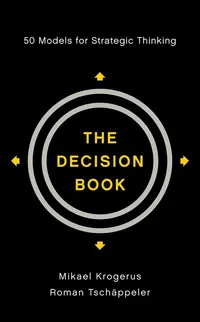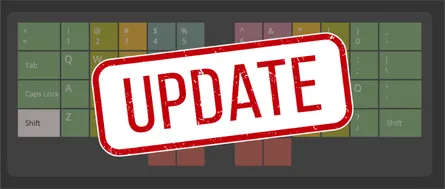
Creativity: Where do great ideas come from?
- Eric Kraus
- productivity
- Oct 10, 2015
Introduction
Whether you are a professional in a career, a student working on a thesis, or boot-strapping entrepreneur looking for the next big thing, producing a stream of new ideas is not something that comes naturally to many people.
You often hear people say, “But I’m just not good at coming up with ideas”. And, that is probably true - in a similar way one might not be good at a sport.
It might appear that some people are better at generating ideas than others. However, we all possess this amazing tool for creativity, our brain .
Athletes Are Role Models
The secret warning that many professional athletes will share is that success doesn’t come from some innate skill that just shows itself . It comes from a disciplined approach and commitment.
Natural talent is a potential skill; it still has to be leveraged.
Regardless of the purpose (becoming a professional or just enjoying a hobby), the process of improving a skill is pretty much the same for everyone: Practice .
No Easy Button
Right out of the gate, this will probably be encouraging to some and frustrating to others.
For some, this opens the door that: with the right attitude, anyone can become good at something
For others, Ooof… this sounds like a lot of work.
Innovation is 10% inspiration and 90% perspiration
So…if you’re up for the challenge, here’s a few things I’ve learned over the years.
Mental Exercises
Here are some suggestions to rev up your own creative workout routine.
Brainstorm Topics
Topics can include anything from world issues to common challenges encountered while preparing a meal at home.
Fiction authors do this to break through writer’s block. If you’re stuck on developing a problem statement, journaling can help. The goal is to just get your mind working.
Write Topics Down
Write topics/problems down on a piece of paper or your favorite digital notebook.
This will help you keep track of the goals. It will also help you stay focused on the problem you are trying to solve. This is synonymous with setting a workout goal.
Research Problems
-
Quora is a great resource for trending questions. Add filters to narrow on your interests.
-
Review Google Trends for things people are searching for.
-
Use a random idea generator or go design something tool to give you a topic to think or write about
Be open to ideas that are related but not relevant to what you are seeking. These “tangents” are often the thoughts that spark other ideas that get you want.
Personal Ideas
If you’re really, really stuck where to start, here are a few ideas:
- Make lists of things you like/dislike
- Write about your personal life, job, etc. What would you improve?
- Write about things you manage/care for: family, house, plants, etc. What does it require to care for them?
- Write about things you buy: gadgets, tools, etc. Why do you buy them?
Write About Solutions
A natural progression is to start writing about solution. You may find this naturally happens during your topic gathering stage and you suddenly begin writing about solutions. This can also be more deliberate, after you have gathered a healthy list, and select one to dive into.
Write About Problem Parts
- Write about the problem in more detail
- Decompose the problem into small parts
- Do these topic/problems exist everywhere, or only in certain regions or with certain people? Why?
Write About The Solutions
- Write about how parts of the problem might be solved in the future
- Write about how the problem might be solved on another planet without gravity or other physical laws
- What is preventing a solution today? Physics? Technology? Money?
Dedicate Time
I highly recommend doing these writing exercises on a regular basis (minimum once or twice a week).
Do it early in the day - you are likely a better thinker at 6am than you are at 6pm after a crazy day.
Much like a runner feels the best before a race…don’t try to dedicate time to creativity after you’ve just run a mental marathon.
Dedicate at least 20-30 minutes for this thinking/writing. It’s only 30 minutes.
Uninterrupted time will serve you better than trying this with kids running around or emails/IMs distracting you. This is why I prefer a notebook, away from the computer.
Use Pictures
I often experiment with diagraming (drawing pictures about) these topics. Sometimes drawing can explain something better than words. You can always fill words in later.
Use lists, diagrams, and other notes to spark ideas
I’ve found The Decision Book: 50 Models for Strategic Thinking incredibly helpful for generating ideas and example diagrams.
Each page of the entire book is a different strategic model. It’s really easy to skip around and try different ones out.
Prioritize Writing Over Thinking
Try to prioritize writing. What I mean is: don’t try to think first, and then write those ideas.
Force yourself to write and just let the writing go. It does NOT need to make sense.
Starting a business is like choosing lunch. Picking nothing is guaranteed to leave you still hungry. Picking something is better than nothing. It’s not about being right, it’s about being .
I think the same applies to getting started with anything. It’s better to start thinking today than to wait for the perfect idea to come along tomorrow.
Managing An Icebox
As you get better at it, managing all the new “tangents” will be more difficult than generating them.
It’s best to have some type of “Icebox” : a place to let your ideas chill , so they aren’t a distraction.
This can be as simple as another page in a notebook with a list of other idea to build on later.
Conclusion
After a short amount of time, you will be amazed at the flow of ideas that your exploration brings to you.
Another side benefit, you may notice it becomes easier to do rapid problem solving in your every day life.
It’s like all this training is now ready for big game and without thinking too much about it, your brain is wired to go through 30 minutes of brainstorming in 3 seconds!
Good luck and happy ideation.




